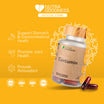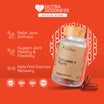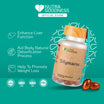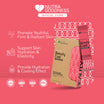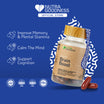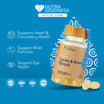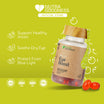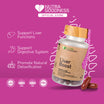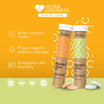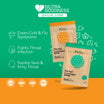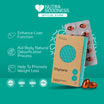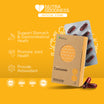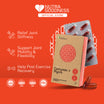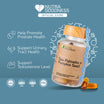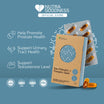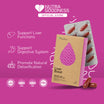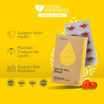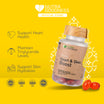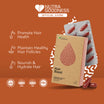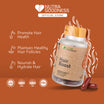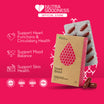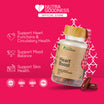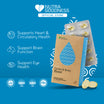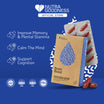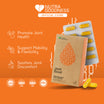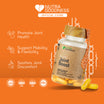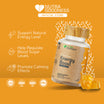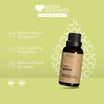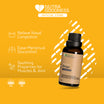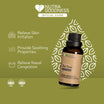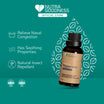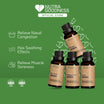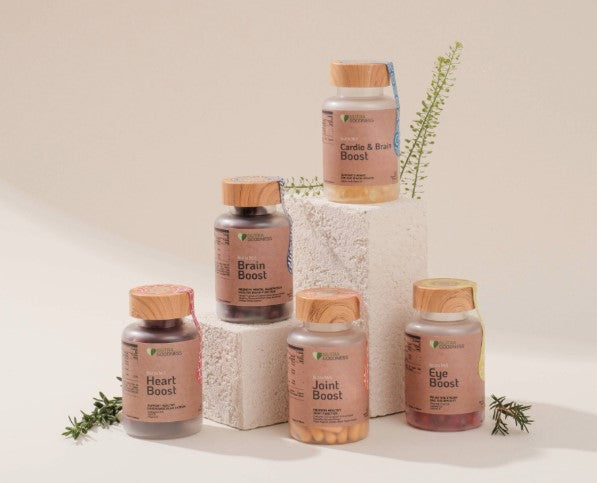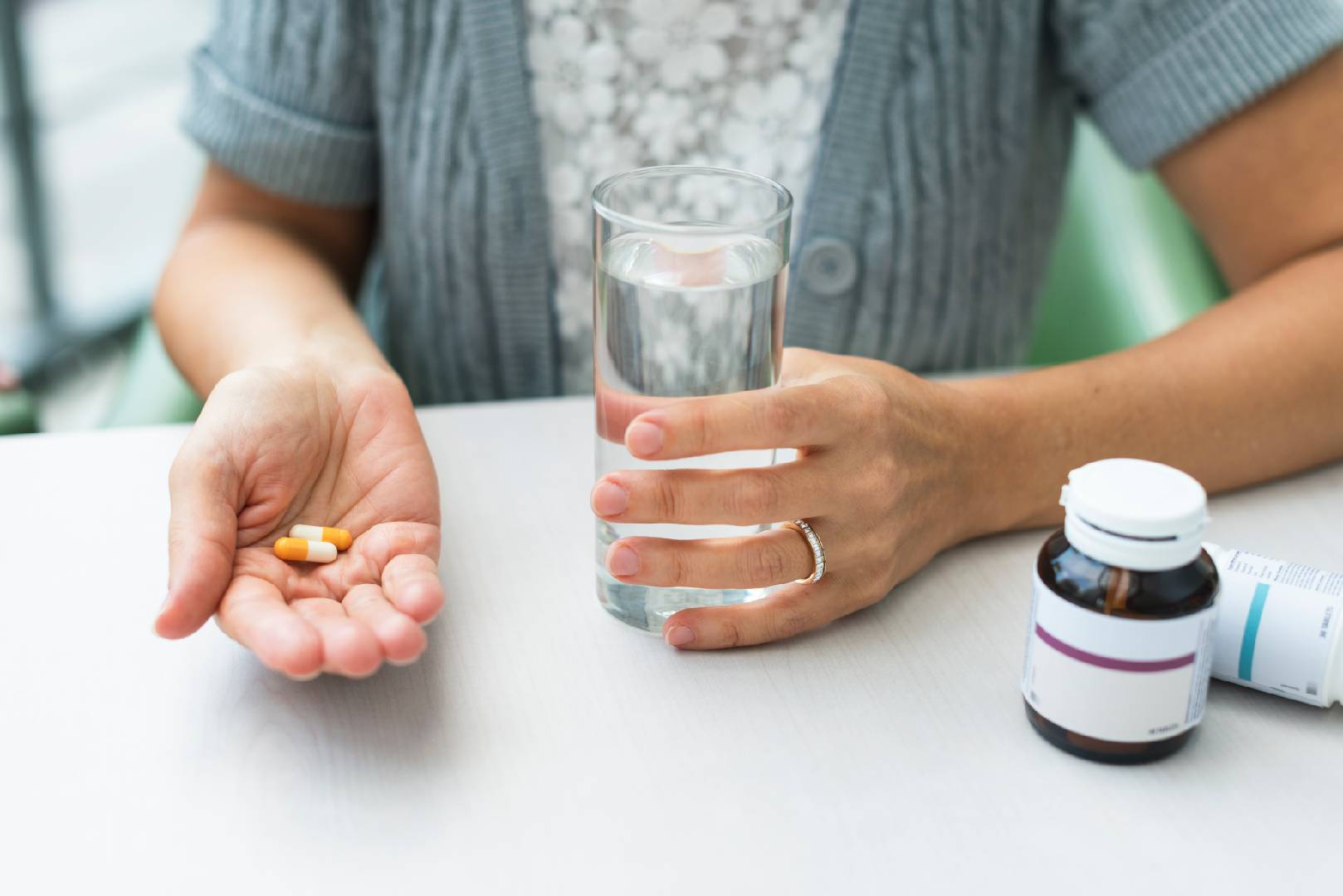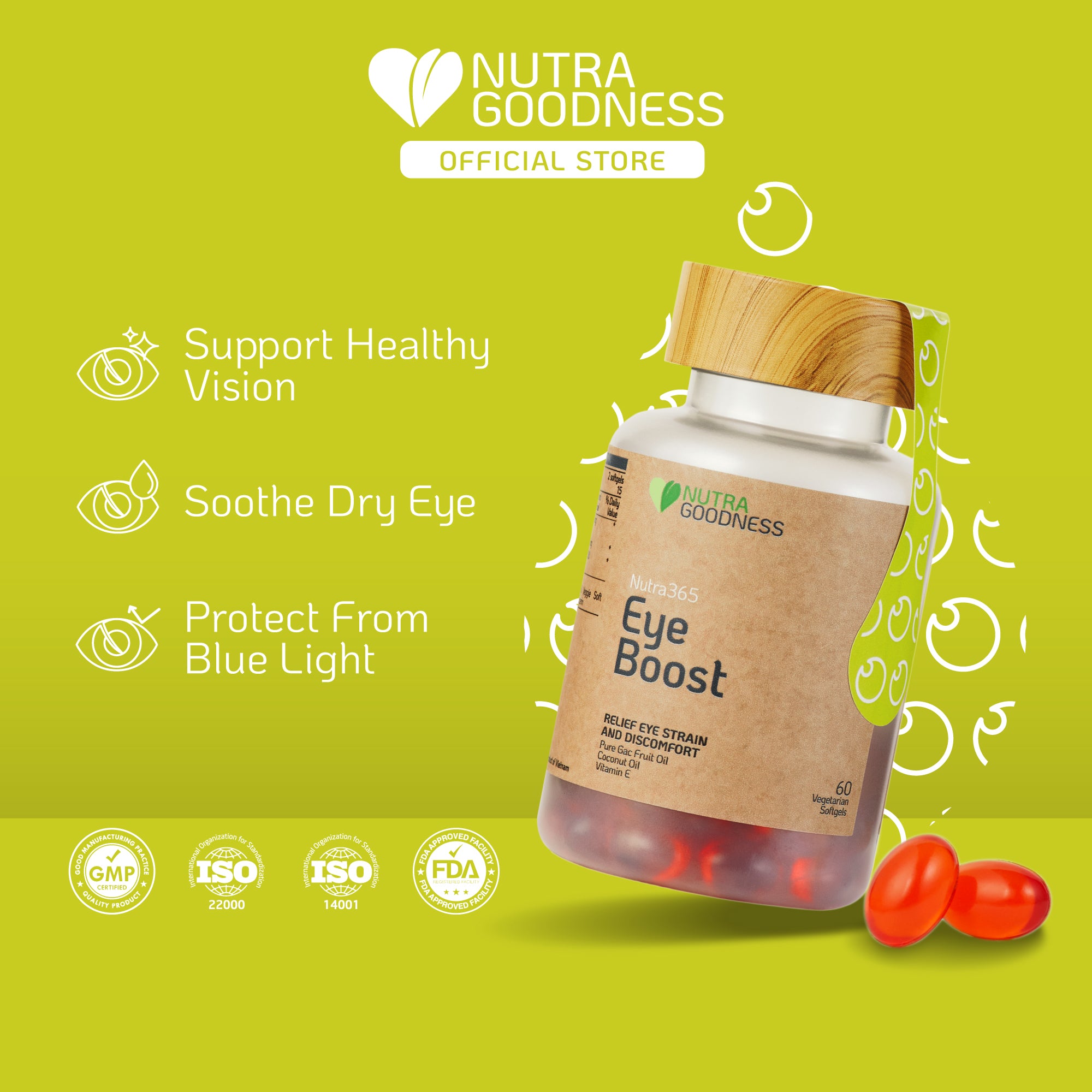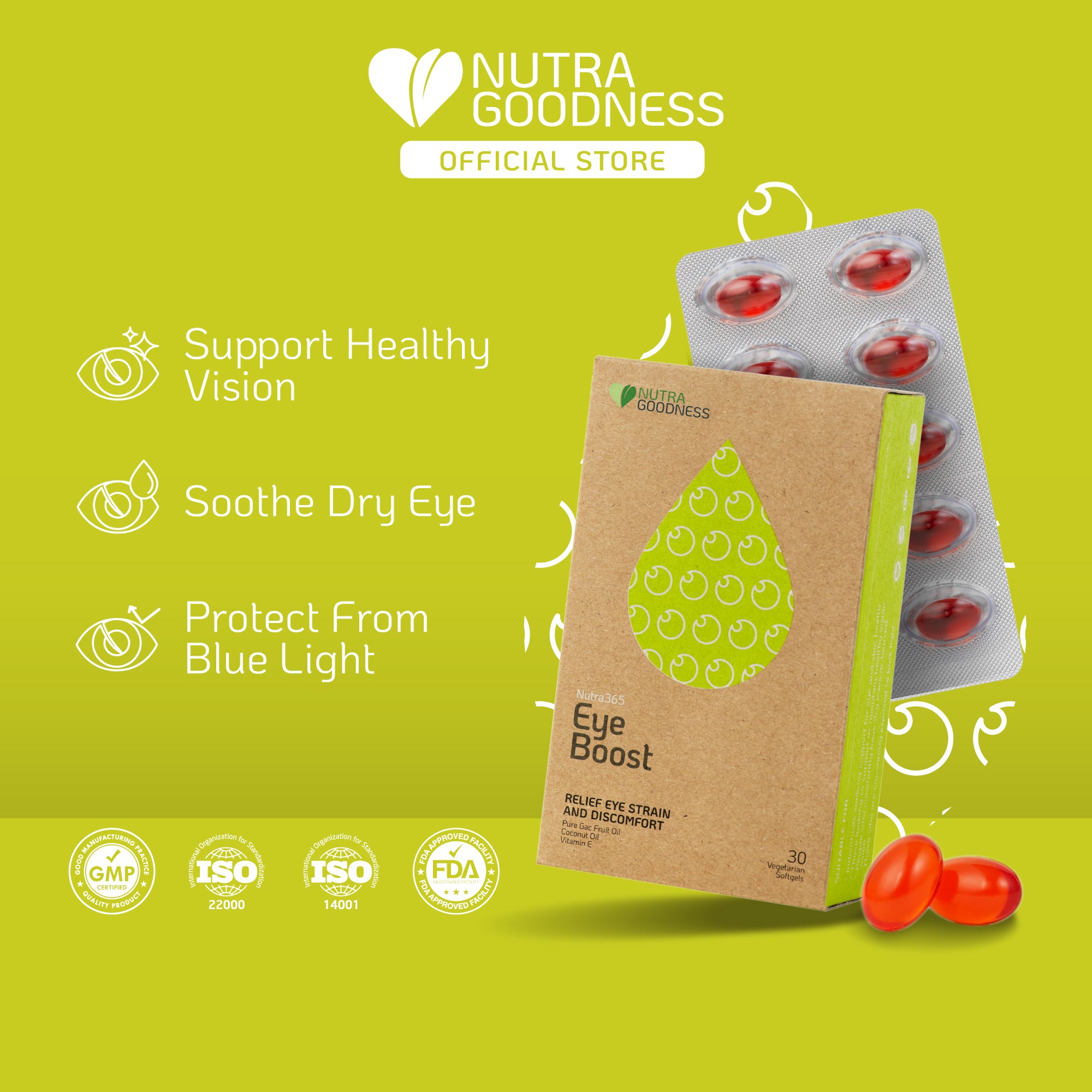When most people think of foods that benefit vision, carrots are usually the first to come to mind. While it’s true that carrots are a great source of beta-carotene, which the body converts into vitamin A—important for night vision—they're far from the only food that supports eye health. In today’s modern world, where digital eye strain, dry eyes, and age-related vision decline are increasingly common, it's crucial to understand that a diverse, nutrient-rich diet plays a key role in maintaining healthy eyes.
In this article, we'll challenge the carrot myth and explore a wide range of unexpected but powerful foods, nutrients, and eye supplements that can help protect and nourish your vision.
Essential Nutrients for Eye Health
Certain nutrients have been widely studied for their role in maintaining vision and protecting eye structures from damage:
Lutein, Beta-Carotene & Zeaxanthin
These carotenoids are concentrated in the retina and act as natural sunblock, protecting the eyes from blue light and reducing the risk of age-related macular degeneration (AMD) and cataracts.
Omega-3 Fatty Acids
Found in high amounts in the retina, omega-3s are essential for tear production, reducing symptoms of dry eyes, and supporting overall retinal function.
Vitamin C & E
These antioxidants combat oxidative stress and slow the progression of age-related vision problems. Vitamin C also strengthens blood vessels in the eyes, while Vitamin E protects cells from free radical damage.
Zinc
This mineral is vital for maintaining healthy retinas and can improve night vision. Zinc also helps transport vitamin A from the liver to the retina, where it's needed to produce melanin, a protective pigment. A study in 2020 found that zinc supplementation with other vitamins can slow down the progression of age-related macular degeneration.
Surprising Foods That Support Eye Health
A wide variety of whole foods can provide the nutrients your eyes need. Here are some unexpected but powerful foods to add to your diet:
Leafy Greens (Spinach, Kale, Parsley): These are among the best sources of lutein and zeaxanthin. Including them regularly in salads, smoothies, or sautéed dishes can boost your natural eye protection.
Fatty Fish (Salmon, Mackerel, Sardines): Rich in DHA, a type of omega-3 fatty acid that makes up a significant part of the retina. These fish also help maintain moisture in the eyes and combat dry eye discomfort.
Eggs: The yolks are a natural source of lutein, zeaxanthin, and vitamin E, all of the nutrients for the eye, making eggs a versatile eye-healthy food that fits into any meal.
Nuts & Seeds (Almonds, Sacha Inchi Seed Oil, Flaxseeds): Excellent plant-based sources of vitamin E and omega-3s, these support overall eye structure and reduce inflammation.
Bell Peppers, Gac Fruit & Citrus Fruits: High in vitamin C, these helps strengthen the eye's blood vessels and reduce the risk of developing eye-related illness.
Foods to Limit or Avoid
Just as some foods support eye health, others can negatively affect it when consumed in excess:
- Excessive Processed Sugars & Refined Carbs: High consumption of refined carbohydrates and added sugars can lead to chronic elevated blood glucose levels, which over time increases the risk of developing diabetic retinopathy—a leading cause of vision loss in adults. According to a Nutrients Journal in year 2020, persistently high blood sugar can damage the small blood vessels in the retina causing cell damage. Glycemic spikes also contribute to oxidative stress and inflammation, which worsen retinal damage.
- Fried & Heavily Processed Foods: These foods are often high in trans fats, oxidized oils, and of low nutritional value. These elements are known to increase systemic inflammation and oxidative stress, both of which are major contributing factors in degenerative eye conditions like AMD and cataracts. Overconsumption of fried and ultra-processed foods can impair the body's antioxidant defenses, making the eyes more vulnerable to damage from UV light and pollution.
- High-Sodium Foods: Diets high in sodium are linked to elevated blood pressure (hypertension), which can impair the blood flow to the eyes and damage the retinal vasculature. Hypertension is known to contribute to hypertensive retinopathy, a condition where the small arteries in the retina become narrowed and can lead to vision disturbances. Sodium-rich processed foods, fast foods, and canned soups are common culprits.
Lifestyle & Dietary Tips for Maintaining Healthy Vision
Supporting your eye health goes beyond food choices alone. Here are some holistic practices to incorporate:
Stay Hydrated
Adequate water intake helps soothe dry eyes by maintaining proper tear production and hydration of the eye’s surface. Dehydration can reduce tear volume, leading to irritation, redness, and a gritty or burning sensation. Staying well-hydrated ensures that your eyes stay lubricated, comfortable, and protected from environmental irritants. In addition to easing dry eye symptoms, proper hydration also supports overall eye function by promoting healthy blood flow and nutrient delivery to eye tissues.
Focus on a Balanced Diet
Supplements can be a valuable tool for filling nutritional gaps, but they should never be seen as a replacement for a diverse, nutrient-dense diet. Whole foods provide not only vitamins and minerals but also a wide array of naturally occurring co-factors—such as fibre, enzymes, phytonutrients, and healthy fats—that work together to enhance nutrient absorption and utilisation. These synergistic compounds are often missing from isolated or synthetic supplements. By prioritising real, whole foods as the foundation of your nutrition, you support more balanced, effective, and long-lasting health benefits, while using supplements as a complementary strategy to target specific needs.
Incorporate Eye-Friendly Foods Daily
Incorporating eye-friendly foods into your daily meals doesn’t have to be difficult—it’s all about making small, intentional swaps. Add a handful of leafy greens like spinach or kale to your morning smoothie for a boost of lutein and zeaxanthin. Snack on almonds, walnuts, sacha inchi seed oil or chia seeds instead of sugary or salty snacks to increase your intake of vitamin E and omega-3s. Craving something crunchy? Swap out chips for crisp bell pepper slices or carrot sticks—they’re packed with vitamin C and beta-carotene, and they nourish your eyes while satisfying your cravings. These simple changes can make a significant difference in your overall eye health over time.
Adopt Healthy Eye Habits
To protect your eyes from digital strain, especially during long hours of screen use, it’s important to adopt healthy visual habits. One effective technique is the 20-20-20 rule:
Every 20 minutes, take a 20-second break and focus on something at least 20 feet away.
This helps relax the eye muscles, reduce fatigue, and prevent dryness. In addition, make a conscious effort to blink more often, as we tend to blink less when staring at screens, which can lead to dry, irritated eyes. Lastly, ensure your workspace is well-lit to avoid unnecessary strain—soft, ambient lighting is ideal, and your screen brightness should match the light in the room. Together, these small adjustments can significantly improve visual comfort and support long-term eye health.
Adding Natural Eye Health Supplements to Your Diet
While food should be your foundation, natural eye supplements can provide added support when dietary intake is insufficient:
- If you're not consuming enough omega-3s or antioxidants regularly, targeted supplements can bridge the gap.
- Look for those containing lutein, lycopene, beta-carotene, zeaxanthin, omega-3 fatty acids, vitamin C, and vitamin E.
- Always consult a healthcare provider before starting new supplements to ensure they're appropriate for your specific needs and don’t interact with any medications.
Carrots are great, but they’re just the beginning. Maintaining optimal eye health requires a holistic approach—one that includes a wide variety of nutrient-rich foods, healthy lifestyle habits, and targeted supplements when necessary. If you're exploring eye supplements in Singapore, choose those backed by science and trusted by eye care professionals. By making small, conscious choices each day, you can support your vision now and into the future. Try incorporating at least one new eye-friendly food this week—or explore a trusted Singapore online supplement shop for options your eyes will thank you for

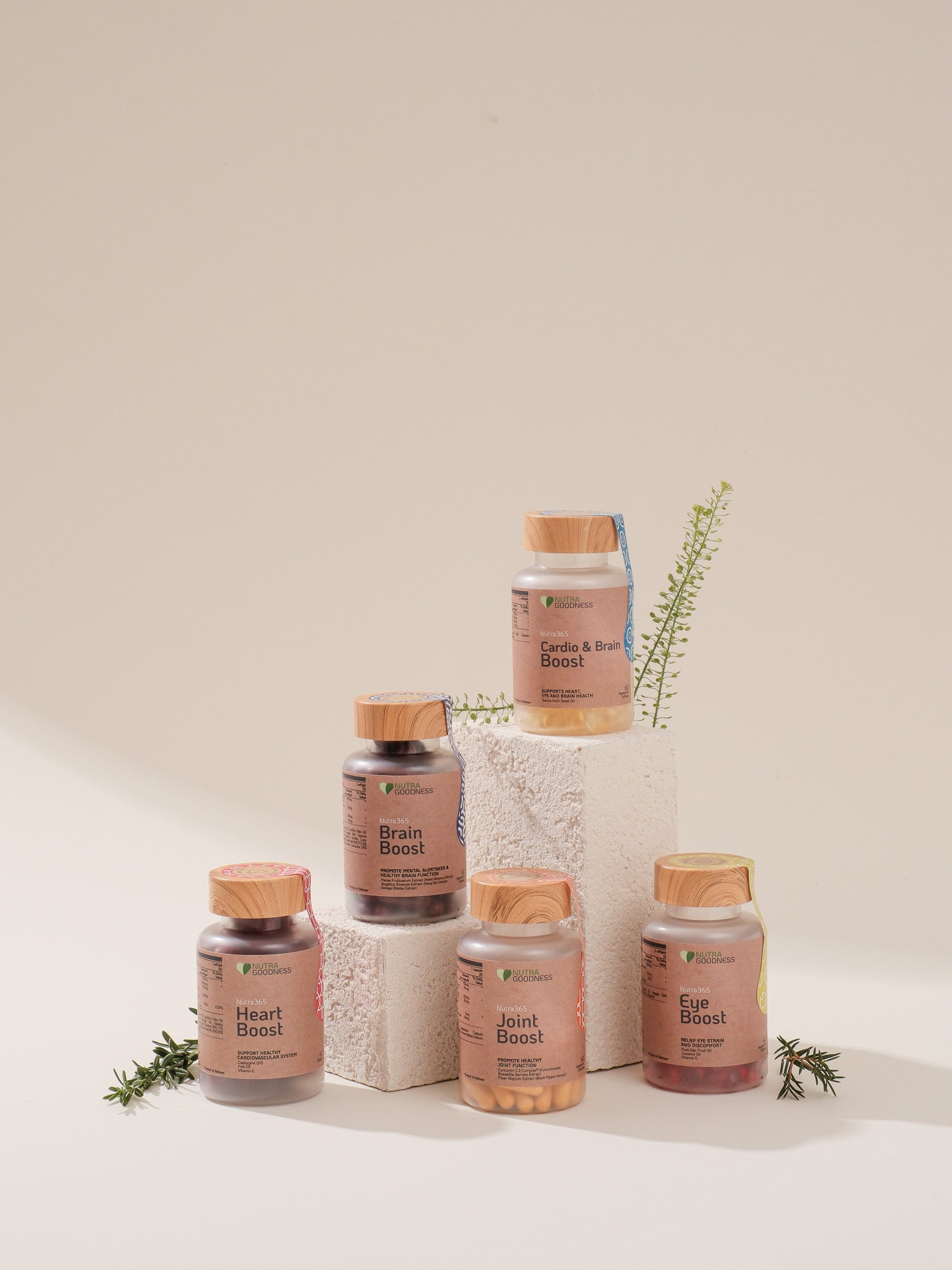

![[Nutra Goodness MindFuel Wellness] Nutra365 Cardio & Brain Boost + NutraGummy Energy Boost + NutraFizz Effervescent](http://www.nutragoodness.com/cdn/shop/files/Listing_Image-37.png?v=1756779870&width=104)
![[Nutra Goodness Glow & Hydrate Set] Nutra365 Heart & Skin Boost + NutraBreeze BeautyCool + NutraFizz Effervescent](http://www.nutragoodness.com/cdn/shop/files/Listing_Image-38.png?v=1756779813&width=104)
![[Nutra Goodness Daily Defense Set] NutraBreeze DetoxCool + NutraFizz Vitamin C Effervescent + NutraSooth Lozenges](http://www.nutragoodness.com/cdn/shop/files/Listing_Image-39.png?v=1756779740&width=104)


